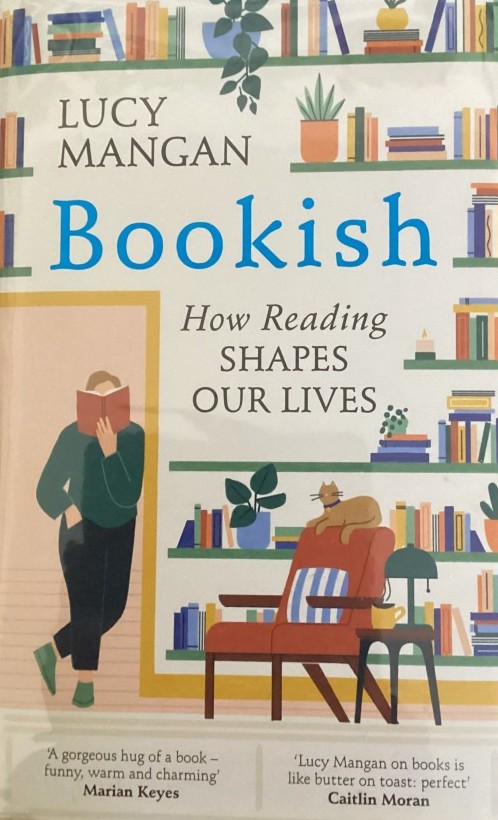Inspiring Older Readers
 posted on 09 Apr 2025
posted on 09 Apr 2025
Bookish: How reading shapes our lives by Lucy Mangan
I can’t give an exact date for when books - reading them, collecting them, hunting them down - first came into my life but I am able to say that everything bookish has now pretty much come to dominate my waking hours. I’m not, I hasten to add, a bibliomaniac - I surround myself with books and all things bookish but I am discriminating and unlike the bibliomaniac, I don’t just fill my house with anything I can get my hands on. I like to think of myself as having a book collection that is a reflection of my own own intellectual development - for better or worse. If you step into my house and spend some time browsing my bookshelves, I would hope you’d go away with a pretty good idea of the type of person I am and even the kind of views I’m likely to hold.
So, I’m certainly ‘bookish’ and they’ve definitely ‘shaped my life’ and, as a result, you wouldn’t be surprised that I would be drawn to read Lucy Mangan’s new confessional, Bookish: how reading shapes our lives. I have previously reviewed her earlier memoir ‘Bookworm: a memoir of childhood reading’ and, in many ways, Bookish is simply a continuation of that narrative, taking us through to the adult Lucy and the role her own compulsive reading and book accumulating has shaped her life.
What soon becomes clear is that people who identify as ‘bookish’ are likely to have plenty of things in common but, crucially, plenty of differences too. I, for example, share her view about how much more desirable it is to stay in with a book than take up battles with the outside world. We also both found working in a bookshop one of the more enjoyable experiences of the world of work. And, as it was for Mangan, school reading (in my case the ‘O’ level English syllabus) was crucial to firing my interest in books and reading them. An inspirational teacher or two is also a godsend.
What I was surprised (and rather pleased) to discover was that Mangan didn’t really enjoy the library. I’ve become so used to memoirs that extol the virtues of libraries as places of refuge or inspiration that I was taken aback when she talks of how the library wasn’t for her because she wanted to own the books she read. Yes! Me too! How on Earth could you give back a book you love?
But while it’s true that many of the impulses and habits she has with books are ones that mirror some of my own experiences, it’s also the case that we diverge on other issues.. Mangan loves what she calls her ‘comfort’ reading - narrative, popular fiction that is often dismissed as pot-boilers or Aga-sagas. She is passionately devoted to some of these mass-selling titles - but I’m not. For me they don’t represent a good read - although I have no problem with her thinking they do the job as far as she’s concerned. I found Dan Brown, for example, positively painful to try and read and quite honestly I’d rather roast my eyeballs than try again.
But increasingly as the book goes on, Mangan seems to be implying that anyone who’d rather read James Joyce or Shakespeare than a more 'accessible' writer like Maeve Binchy is an elitist snob who isn’t really being truthful with themselves. And, although she says more than once that we should not judge people’s reading as high or low culture, she clearly does have a bee in her bonnet about ‘elitist’ readers - but without ever really explaining what she means by elitists. Does a preference for non-narrative, more experimental reading over narrative storytelling make you elitist? Or is this a sort of inverted snobbery all of its own?
But, if you're in the right mood, I'm sure that any book-lover would find plenty here to entertain them - even iof you find yourself at odds with some of her personal predelictions. The book is currently only available as a hardback but you won’t need to wait long for the paperback to appear.
Terry Potter
April 2025